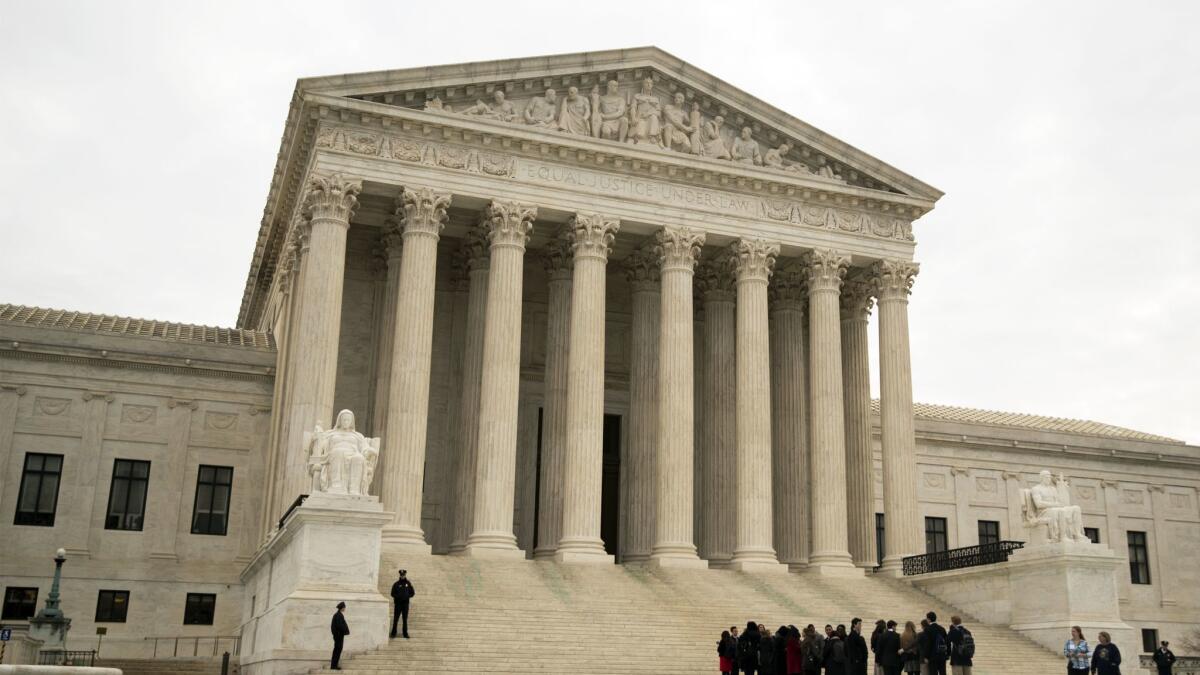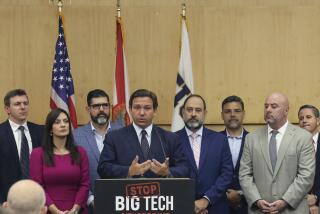Supreme Court will decide billion-dollar question for online sales: Can states collect sales taxes on all purchases?

The Supreme Court announced Friday that it will consider allowing states to require all online sellers to collect sales taxes, revoking an old rule that costs states billions in lost revenues.
The justices said they would hear an appeal from South Dakota and 35 other states that says the current “physical presence” rule is outdated and unfair in an era when Americans do much of their shopping online.
In 1992, when home shopping was dominated by mail-order catalogs, the high court ruled a state may require out-of-state companies to collect sales taxes only if the company had outlets or warehouses within the state. The justices said then that requiring companies to do more would amount to discrimination against interstate commerce.
But the explosion of internet sales has put pressure on Congress and the court to reconsider the issue. Traditional retailers joined the fray, arguing it is unfair to require them, but not their online competitors, to charge sales tax with each purchase.
States and counties told the court they lose between $13 billion and $34 billion each year because they cannot collect sales taxes on all online purchases.
While Congress has the constitutional authority to regulate interstate commerce, the House and Senate have not agreed on a law to regulate tax collections for online sales.
State lawyers were cheered two years ago when Justice Anthony M. Kennedy said the court should “reexamine” the 1992 decision in Quill Corp. vs. North Dakota. That decision was “questionable even when decided,” and is “now inflicting extreme harm and unfairness on the states,” Kennedy wrote in a concurring opinion.
Justice Neil Gorsuch also voiced skepticism about the 1992 decision when he was an appeals court judge, describing it as having created “a sort of judicially sponsored tax shelter.”
Kennedy’s comments prompted South Dakota to launch a new attack on the physical presence rule. On Friday, the court said it will hear the case of South Dakota vs. Wayfair in April, with a ruling likely by late June.
The justices also said they will review several legislative districts in Texas to decide whether they were drawn to dilute the voting power of Latinos. The case is Abbott vs. Perez.
Twitter: DavidGSavage
More to Read
Get the L.A. Times Politics newsletter
Deeply reported insights into legislation, politics and policy from Sacramento, Washington and beyond. In your inbox three times per week.
You may occasionally receive promotional content from the Los Angeles Times.







